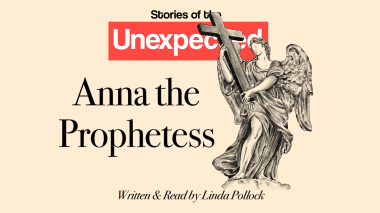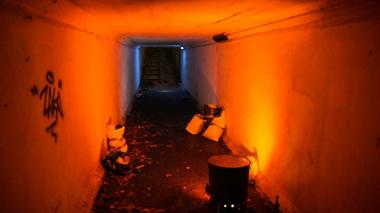Worship is the core function of the church

The reason why the Church Without Walls (CWW) Report’s findings have never been fully realised is not because the central church refused to accept them; in many ways it did and even tried to integrate some of the thinking into cross-council collaboration.
The failure was that CWW became incorporated into the central structures and in some way became institutionalised. Thus it no longer served as a prophetic voice outside the system, instead the system domesticated the movement and made it a department of a council.
This stagnation occurred locally because parishes lacked the confidence to facilitate the changes proposed by the report. The report rightly refused to set up a formal structure with staff to carry through the reform, instead for a number of years motivational events and conferences were organised by the CWW Planning Group. This prophetic group operated outside the recognised structures having its own budget and reported directly to the General Assembly.
By 2008 over 650 congregations had bought into the vision of CWW at some level culminating in a huge two-day event at Ingilston. However, in 2009 with its change in status CWW took on a new identity, and it was left to the Heart and Soul initiative, a few years later, to seek to be the motivational force. The CWW Report still has a great deal of relevance, but it has to be re-visited and re-imagined for a new generation.
Perhaps congregations have failed to see the correlation between prayerful authentic worship and fruitfulness. At a local level we have allowed ourselves to accept less than the best when it comes to worship. We need more people to begin to express a holy discontent with the offerings we are making. Many years ago, I remember the theologian John Peck, in a sermon reminding us that public worship was a shop window into the world. Our worship he said, described the kind of God we serve.
If we allow the gospels to begin to shape our thinking and worship, sooner or later we will be pouring expensive perfume over the feet of Jesus. I believe those of us who are called to lead worship, and those of us who worship regularly in our parish churches need to take a long hard look at what we call worship on a Sunday, and ask ourselves, 'is it ood enough?' Of course it is never good enough, and we must keep striving to bring the best we have. Perhaps we should reflect more on the words of King David when he said “I will not offer unto the Lord that which has cost me nothing”
I ended the last blog post by concluding that our effectiveness as a church does not depend on structures and strategies, but on our relationship with Jesus Christ our King and Head. It is too easy to allow ourselves to believe in programmes rather than prayer. As disciples of Jesus we need to be continually making time in our lives to cultivate prayer conversations with our Lord and to allow space for these conversations to be heard throughout the church.
Public worship is an important discipline that allows us to engage with the voice of the Holy Spirit in community, but also to hear that voice speak to us in person. This means we need to find more opportunities for the prophetic voices of God’s people to be heard within the wider church community.
It is also important to acknowledge that we have a responsibility for one another. It is worth noting that it was within the context of worship that Cain asked the question of God, “Am I my brother’s keeper?” The silence and pain of that moment says it all: 'yes' we are responsible for each other.
The gospel opens up a new way, offering redemption and reconciliation to all who turn to Christ. Hence the writer of the epistle to the Hebrews reminds fellow believers not to give up on meeting together. We have an offering to bring to God, and to one another in our act of worship. We are in the business of creating, sustaining and developing worshipping communities. Communities made up of individuals who have a loyalty and an allegiance to the Lord Jesus Christ and a desire to live out the values of his Kingdom in our own localities. In 2001 the CWW Report highlighted this as our core purpose:
The purpose and shape of the Church of Scotland at the beginning of a new Millennium arises out of that calling of grace. Our sole purpose is the glorification of God. Only when the people of Scotland and other nations are released into worship of the God of grace is that purpose fulfilled. That calling is eternal.
Steve Bruce, Professor of Sociology at Aberdeen University, writes: “the only area of life where the church can compete with any secular institution or social practice and win, is in the glorification of God.” (unpublished letter to the Commission)
The radical nature of the Church of Scotland is that we exist for the people who don't go to church. It was Archbishop Temple who remarked; “The Church is the only institution that exists primarily for the benefit of those who are not its members.”
When congregations, presbyteries and councils of the church grasp the radical nature of this idea we will be a different kind of community, gathering to worship a God who has conversations with saints who are also sinners.




 Add to Favourites
Add to Favourites







Login to comment.